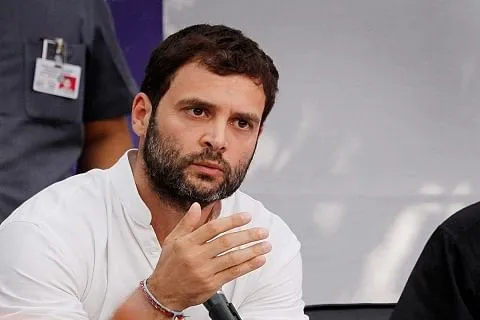New Delhi: The Surat Sessions Court on Thursday dismissed Congress leader Rahul Gandhi’s plea seeking to stay his conviction and two years sentence by a Magistrate court in the criminal defamation case filed against him.
Gandhi was convicted by a Magistrate court in Surat on March 23 for his remark “all thieves have Modi surname” which he had made at an election rally in Kolar in 2019.
The conviction was based on a complaint filed by BJP leader Purnesh Modi, who claimed that the Congress leader through his remark defamed the entire Modi community. Additional Sessions Judge Robin Mogera on Thursday refused to stay the conviction by the Magistrate.
This would mean that Gandhi would continue to stand disqualified from Lok Sabha.
Judge Mogera, while dismissing the application filed by Gandhi, opined that Gandhi’s disqualification would not cause any irresistible or irrevocable loss to him.
Following are the six major reasons, why the court dismissed Gandhi’s plea.
Purnesh Modi’s complaint is maintainable
Rahul Gandhi had argued that only PM Narendra Modi could have filed a complaint of criminal defamation as there is no identifiable group called as ‘Modi’ and thus the plaint filed by Purnesh Modi is untenable.
However, Judge Mogera in his order noted that Gandhi had made certain derogatory remarks against Prime Minister Narendra Modi in the general public and further compared the persons having ‘Modi’ surname with thieves. Hence, the reputation of the complainant who bears the surname Modi was also harmed, the Court concluded.
“Moreover, the complainant is an ex-minister and involved in public life and such defamatory remarks would have certainly harmed his reputation and caused him pain and agony in society. For such reasons, I do not agree with the objections raised with regard to the maintainability of the complaint,” the judge said in the order.
Trial was fair and not harsh
The Court said that the Magistrate gave Gandhi all opportunities to cross-examine witnesses and hence, Gandhi’s contention that the trial court was unfair to him, was incorrect.
“It appears from the record that all opportunities were accorded to Gandhi for cross-examining the witnesses and hence I do not agree with the contentions about him being deprived of a fair trial,” the judge underscored.
Specifically on the argument that the maximum sentence was imposed on Gandhi and the same was disproportionate, the Court said that the Magistrate imposed a sentence which was permissible in law.
“So far as imposing of maximum punishment is concerned, it would be worthwhile to observe that the appellant was not an ordinary person and was a sitting MP, connected with public life. Any word spoken by the appellant would have a large impact on the mind of the common public…Moreover, a high standard of morality is expected from a person like the appellant and the trial court had inflicted sentence, which was permissible in law,” the Court said.
Gandhi’s speech caused mental agony to Purnesh Modi
The judge further said that Gandhi’s words would have caused extreme mental agony to Purnesh Modi who himself is socially active and involved in public life. While delivering the speech Gandhi was not only the Member of Parliament (MP) but also the President of the second largest political party and looking at his stature, he should have been more careful with his words, which would have large impact on the mind of people, the Court said.
Disqualification from Lok Sabha isn’t an irreversible loss
The Court relied upon the observations made by the Gujarat High Court in Naranbhai Bhikhabhai Kacbhadia vs State of Gujarat, wherein the High Court had interpreted powers under section 389 of the CrPC, which deals with suspending sentence during the pendency of the appeal.
In that case, the High Court had held that mere disqualification or loss of job due to conviction wouldn’t be an exceptional or rarest of rare circumstances for the higher court to consider staying the conviction.
“I hold that removal or disqualification as Member of Parliament cannot be termed as irreversible or irreparable loss or damage to Gandhi,” the judge held.
Gandhi failed to demonstrate how not staying conviction would impact him
The Court held that Gandhi failed in demonstrating that by not staying the conviction and denying an opportunity to contest the election on account of disqualification under section 8(3) of the Representation of the People Act, 1951 an irreversible and irrevocable damage is likely to be caused to him.
Powers under section 389 CrPC are discretionary
Judge Mogera said that it has been held in a number of rulings that the powers accorded under Section 389(1) of CrPC to suspend/ stay the conviction is required to be exercised with caution and circumspection.
“If such power is exercised in a casual and mechanical manner, the same would have a serious impact on the public perception of the justice delivery systems and such order will shake public confidence in the judiciary. Hence, I am of the opinion that Gandhi has not made out any case to suspend the conviction recorded against him,” the judge underscored.
(Courtesy Bar and Bench)






